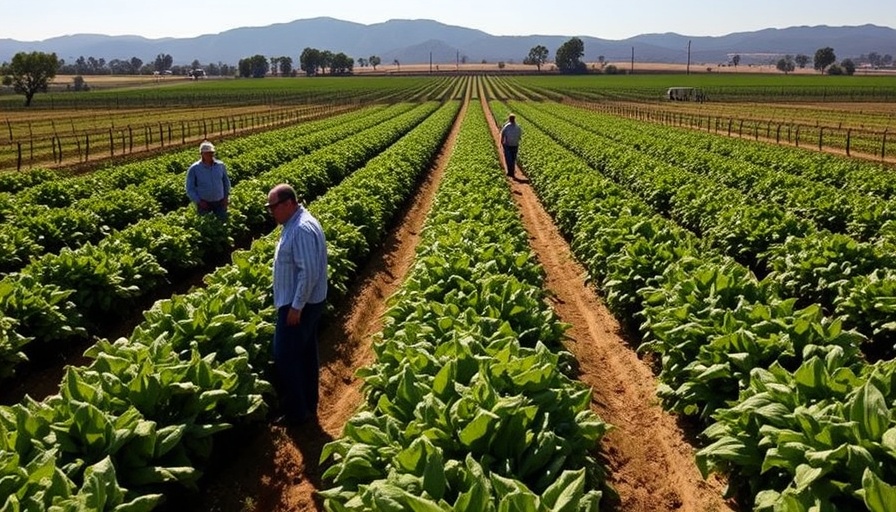
How Immigration Raids are Impacting California's Agriculture
Recent immigration raids in California are threatening to disrupt the agricultural backbone of America. From packinghouses to farms, uniformed federal agents have intensified their efforts, arresting dozens of workers in Ventura County, well-known for its strawberries, lemons, and avocados. This enforcement, coinciding with President Trump’s aggressive immigration policies, has sent shockwaves through immigrant communities and resulted in a noticeable decline in farm labor.
Fear Leads to Decreased Workforce Availability
Reports from local farm bureaus reveal that between 25% and 45% of farmworkers have stopped showing up for work due to heightened fears of detainment. Maureen McGuire, head of Ventura County’s farm bureau, underscores the ripple effects of this decline, explaining, “When our workforce is afraid, fields go unharvested, packinghouses fall behind, and market supply chains, from local grocery stores to national retailers, are affected.” This situation not only jeopardizes the domestic food supply but directly impacts consumers’ access to fresh produce.
California's Role in National Food Supply
California stands as a crucial player in American agriculture, producing over one-third of the nation’s vegetables and three-quarters of its fruits and nuts. With such proportions, any disruption in labor threatens not only local businesses but also the broader economy. As California's landscape features both deep agricultural roots and a complex political climate, even stakeholders who typically support current policies are beginning to voice concerns about the potential fallout of these raids.
The Gamification of Fear Among Workers
The fear generated by the recent raids creates an alarming atmosphere for many workers. Activists like Primitiva Hernandez of 805 UndocuFund estimate that at least 43 individuals have been detained during these operations. The silence and increased absenteeism among workers not only impede agricultural operations but also stoke anxiety in communities reliant on these jobs for their livelihood.
Next Steps: The Importance of Advocacy
As local communities grapple with the implications of these enforcement actions, it becomes crucial for all stakeholders—including farmers, workers, and consumers—to advocate for fair treatment and a sustainable labor force. Awareness and communication can galvanize collective action to address the pressing needs of agricultural enterprise.
 Add Row
Add Row  Add
Add 



Write A Comment